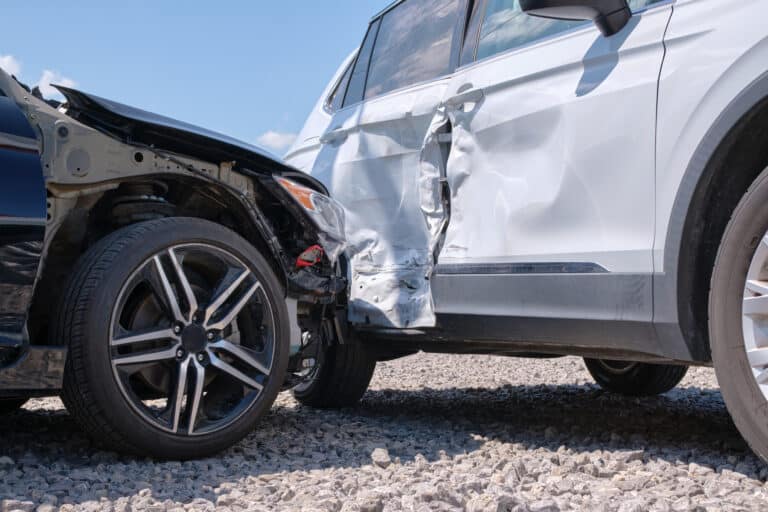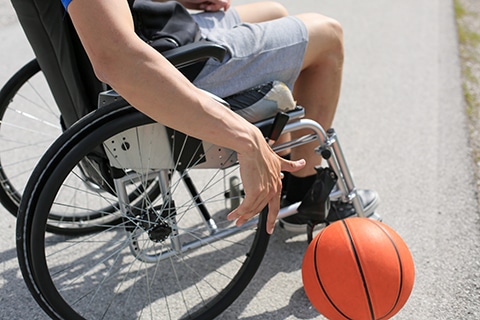When we think about injury car accidents, we typically think about injuries caused by the immediate physical impact: broken bones, sprains, lacerations, traumatic brain injury, etc. We don’t usually think about the possibility that a car crash could trigger a heart attack or stroke. But some studies have indeed suggested that this is the case. February is American Heart Month—a month dedicated to raising Americans’ awareness of heart health and the causes of heart failure and stroke. To that end, let’s explore this question further: Could an otherwise healthy person suffer a heart attack or stroke after a car accident, even if they had no other overt injuries?
An interesting study from Boston University School of Medicine sheds some light on this question. In the study, researchers found that adults aged 65 and older who were occupants in a car crash were more likely to suffer heart failure or stroke within 30-180 days of the crash than pedestrians who were hit by a car. While older adults are naturally more prone to heart attack or stroke, this data clearly showed the car crash as a significant factor in people who were otherwise healthy.
Other research has confirmed that car accidents can indeed increase the risk for heart attack and stroke in other adults after the fact, whether due to physical injuries or increased stress. Let’s take a closer look.
Heart Attacks
Heart attacks can occur in the aftermath of a car accident for a variety of reasons. The two most common causes are:
- Blood clots due to injuries. Blood clots can form in the legs or other extremities as a result of a car crash, and these can break off and travel to the brain or heart.
- Stress and acute trauma from the impact of a crash. Stress releases certain proteins called catecholamines, which have been shown to cause damaged muscle cells that can ultimately affect the heart. This stress can also cause atrial fibrillation or another condition similar to heart attack called “takotsubo cardiomyopathy,” or broken heart syndrome—even in healthy adults who suffered no outward physical injuries from the crash.
Strokes
Strokes can also occur after a car crash due to stress and trauma…but more commonly, these occur in the aftermath of other physical injuries (even seemingly minor ones). Whiplash, for example, can cause tears in brain tissue, which can lead to stroke over time. Even minor accidents that don’t seem like they should be serious—such as low-impact rear-end collisions at slow speeds—can still result in whiplash or other neck injuries capable of causing an eventual brain hemorrhage. Other causes of stroke after a car crash include hemorrhaging from blood vessels weakened from the impact that eventually burst, or by disruptions to blood flow caused by the accident itself.
Always Get Checked by a Doctor After a Car Accident
Even if you believe you sustained no injuries in an accident, there’s a possibility for complications to occur after the fact, such as heart attack or stroke. A physical exam may reveal early warning signs that enables the doctor to take preventative steps to avert heart attack, stroke, or other issues.
If you’ve been injured in an accident, or if you believe a recent heart attack or stroke was caused by an accident after the fact, our team of personal injury lawyers can work to make sure you receive due compensation for your injuries. Call our offices to schedule a free consultation.
Treating Burn Injuries Related to a Car Crash
Receiving injuries from a car crash can be bad enough, but the stakes are much higher when burn injuries are also involved. Considering that a car includes hundreds of pounds of hot metal, scalding hot water, and highly flammable oil and gas, it’s not uncommon for accident victims to suffer serious burn injuries. An accident could put you in direct contact with searing hot substances, or you could suffer burns in a subsequent car fire.
Whatever the case, these burn injuries can be severe and life-threatening, and treating them can be a prolonged and painful process. Let’s discuss crash-related burn injuries in more detail: how they are treated, what complications may arise, and why you need a skilled attorney to make sure the additional costs of treatment are covered.
Degrees of Burn Injuries
Burn injuries are categorized into different levels of severity:
- First-degree burns are the least severe in nature, affecting only the outermost layer of skin. (Sunburn is the most common type of first-degree burn, followed by accidentally touching a hot pan or plate.) If your skin comes in contact with anything hot for a short period of time, you can expect to receive first-degree burns. These mild injuries typically heal on their own within a few weeks.
- Second-degree burns are more serious because they cause blistering and damage to deeper layers of skin tissue. You could experience these from touching something hot or from being exposed to flame for more than a couple of seconds. Second-degree burns require immediate medical attention to prevent scarring and infection, and the treatment may include daily cleaning and dressing changes, antiseptic medicated cream application several times a day, etc.
- Third-degree burns affect the layers of skin and areas of fatty tissue under it. Only your nerve endings remain intact; all other tissues are fully damaged. Third-degree burns may need specialized treatment like debridement (removal) of dead tissue, skin grafting, or fluid replacement therapy.
- Fourth-degree burns affect all layers of skin, nerves, and bone. Without immediate medical treatment, these burns can be fatal.
Car Accident Burn Injury Complications
Receiving burn injuries in a car accident can make your treatment much more complicated–especially because your exposure to dirt, debris, and chemicals makes the burn injuries more susceptible to severe infection. Burns also tend to increase the pain and suffering from the accident considerably since the nerves are deeply affected. Burn injuries often leave permanent scarring and may require multiple surgeries and long recovery times, resulting in excessively high medical bills and additional lost income.
Why You Need a Skilled Attorney for Burn Injury Car Accidents
Burn injuries related to car accidents can result in more complications, greater pain, increased suffering, and longer recovery times. Yet, insurance companies will still try to pay as little as possible, often offering far less money than is needed for a full recovery. To ensure you receive the full settlement you deserve, you should hire a personal injury attorney with specific experience in burn injury cases. Our team of experienced attorneys understands the complexities of burn injury car accidents, and we know how to make sure your injuries, pain, and suffering are fully covered. Contact us today to schedule a free consultation.







